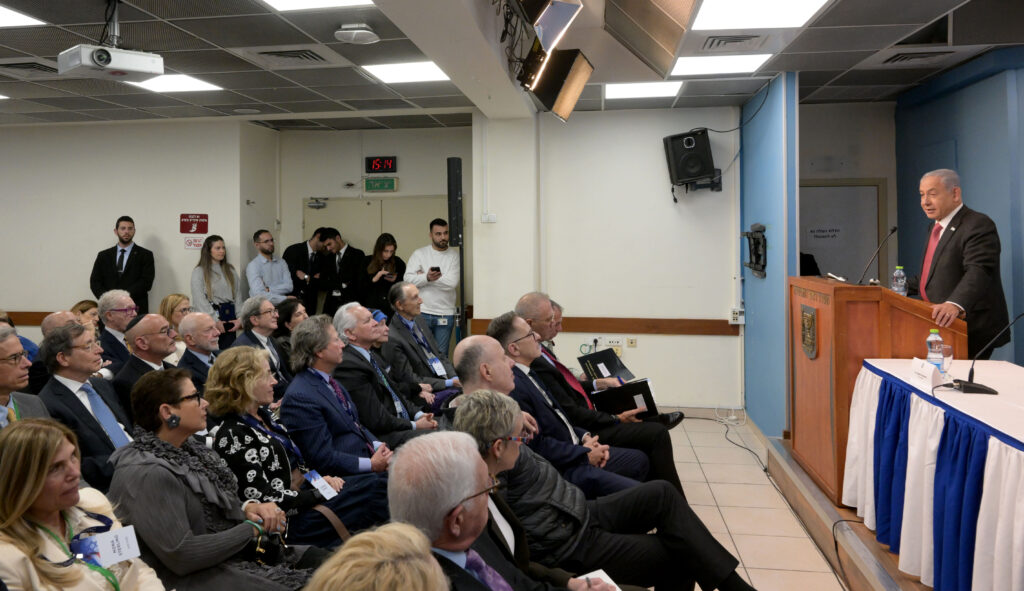Prime Minister Netanyahu offers two speeches to the nation within four days, first emphatically pushing ahead with the judicial overhaul process, then calling for a pause.

By Topic
Find content relevant to your specific interests or area of study.
By Type
Choose the format that best suits how you want to engage with the content.
By Language
Access content in the language that best supports your learning.
By Era
Explore content organized by historical period to focus your learning by timeframe.

Prime Minister Netanyahu offers two speeches to the nation within four days, first emphatically pushing ahead with the judicial overhaul process, then calling for a pause.

CIE President Ken Stein briefly reviews the 2023-2025 Hamas-Israel war and examines the short- and long-term consequences.

Using published archives, press conferences, speeches and numerous interviews, this compilation of quotations traces how official American views on Zionism and Israel have evolved over a century.

In the waning days of the Reagan administration, Secretary of State George Shultz pushes for U.S.-mediated peace negotiations, including Palestinians, and offers the outlines for a resolution to the conflict.
The following scholars, academics, think-tank leaders and other academics offer their thoughts on israeled.org. “CIE’s website is the most comprehensive and reliable resource pertaining to the modern State of Israel that I know of. With…

Maya Rezak and Ken Stein, February 8, 2026 Hussain Abdul-Hussain, “Why Is Saudi Arabia Abandoning Peace?” The National Interest, January 23, 2026. Oded Ailam, “‘The Glass Wall’: How Israel Turned Intelligence Into an Insurance Policy…

Nine questions guide key understandings about Theodor Herzl’s “The Jewish State.”

Israel is competing in bobsled, alpine and cross-country skiing, skeleton, and figure skating at the 2026 Winter Olympics in Milan and Cortina, Italy.

While the Palestinian official leading the technocratic Gaza administration promises to open the Rafah Crossing and the Bulgarian high commissioner for Gaza urges the world to focus on the big picture, U.S. envoy Jared Kushner lays out a vision for Gaza as a rapid, phased real estate redevelopment.

A Zionist delegation to the Paris Peace Conference makes an effective, largely successful case for the League of Nations to incorporate a future Jewish national home into the British Mandate for Palestine.
